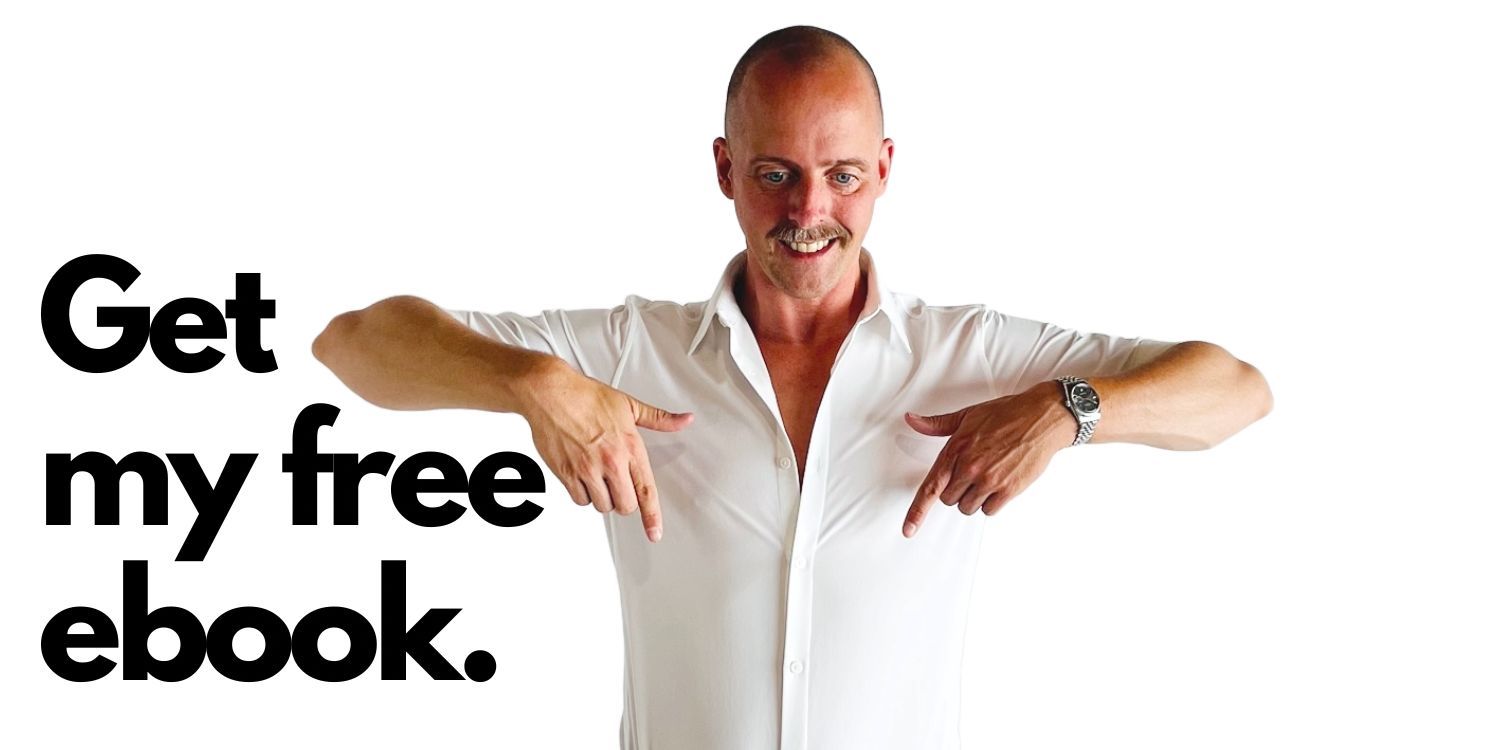Your relationship as a mirror for what needs to change - about how you sometimes lose part of your individuality and how you take it back
Sep 6
/
Rene Luisman
People develop many ways of not saying what they actually mean. An indirect message in the hope that the other person will understand. A compliment with a sarcastic undertone. Vague or woolly language, to take the sharp edges off. Or simply say nothing at all. We think we are doing ourselves and others a favor. But nothing could be further from the truth. You are not only limiting yourself, but also the growth of your relationship.
Jonathan hasn't been out for the past two years. For him, going out is equivalent to visiting dance parties, where he can let go of all responsibilities under the influence of sex and drugs. His partner Rick doesn't like these kind of parties. And because they have an agreement to not have sex without each other, Jonathan doesn't go out anymore either.
It often sneaks in unconsciously. At first you buy his favorite toothpaste. You order pepperoni pizza because you know he likes it. You no longer flirt with other men on the street so as not to hurt him. You skip your gym class to spend more time together. And before you know it you, as a bird of paradise, are suddenly sitting at home in front of the TV every Friday evening. In your house suit with a bowl of chips and a glass of cola.
With our coaching sessions, Jonathan hopes to regain some of his individuality. We do this by first investigating what is important to him. His personal values are an important starting point for determining where he has lost himself in the relationship. Values such as individuality, freedom and fun have been given less and less expression in recent years, leaving Jonathan feeling numb.
The next step is often more challenging. To bring these values back into the relationship. To give words to what Jonathan considers important. And to start the conversation to what is important to Rick. So that there is a chance that they will find each other again. To break free from the entanglement, also called symbiosis. Where two people merge into one, at the expense of both their authenticity.
People develop many ways of not saying what they actually mean. An indirect message in the hope that the other person will understand. A compliment with a sarcastic undertone. Vague or woolly language, to take the sharp edges off. Or simply say nothing. We think we are doing ourselves and others a favor. But nothing could be further from the truth. You are not only limiting yourself, but also the growth of your relationship.
Because in order to grow you sometimes have to say how it really is. Beyond the discomfort with you or the other. Beyond how you think it should be or how you ever learned it. With the risk of hitting the other. That the other person dislikes it. Gets angry, feels hurt or completely disagrees. That's what a real connection is all about.
As gay men, we are often masters of our inner world. From an early age, we are necessarily taught to practice introspection. To subject our identity to self-examination. To discover where we differ from others. At the same time, what we have often learned less well is to come out with this. It might have been too unsafe to express our feelings and emotions, we couldn't foresee the consequences or we didn't have an example of how to do it. We still have to learn this skill in our adult relationships, in order to bring out the best in each other.

I remember well how my parents argued. My mother, bitter because she didn't feel seen and heard. She felt like she was on her own with three kids. And my father who thought he could never do it right. Two people who couldn't bridge the distance between them. So at the dinner table reproaches were thrown back and forth (and sometimes a carton of yellow custard) until my father got up and fled to the attic in a state of impotence. No wonder I also prefer to avoid conflicts.
What I've been able to learn is to see that a relationship thrives better if it crunches and crackles every now and then. That the longer I hold it in, the more intense the emotion eventually emerges. That I don't ignore what is important to me, but start a conversation with the aim of making our relationship better. To put words to it, even if a conflict is lurking first.
That's why in coaching sessions I give a lot of space to the practical side. Good insights alone don't get you much. The goal is that you feel strong enough to handle difficult conversations. Because you have faith that it will make you a better person. More mature and fulfilled. That's why Jonathan and I practice putting words to his needs in our conversations. To voice over and over again what he needs in the relationship. Even if that's not what Rick can give.
These retakes help Jonathan to redefine his boundaries. To express them authentically, in a way Rick can hear them too. So that they keep talking, until what needs to be said has been said.
*** The names in this article have been changed to protect the privacy of my clients. ***
You read an article by Gay Men Coaching
- Self Love Course - Learn step by step how to build a positive self image.
- Men's Group - Find out how other gay men deal with issues such as intimacy and sexuality.
- Coming-out program - If you could use some support before, during or after your coming-out.
- Individual coaching - If you want to improve the relationship with yourself or others.
- Remaster Your Life - In 9 months we work intensively on your personal and/or professional development
And more about me and my approach:
Follow me on:
Latest from our blog

Get in touch
-
Geestbrugkade 32, 2281 CX Rijswijk, Netherlands
-
contact@reneluisman.nl
-
Chamber of Commerce number: 59693908
-
IBAN: NL49 KNAB 0259 9752 22
Join Our Newsletter
Get monthly updates on news, articles, tips and more.
Thank you!
Gay Men Coaching © 2014 - 2025

with 5 powerful tools to feel confident
As a bonus you will receive a monthly e-mail with tips & inspiration. You can easily unsubscribe at the bottom of every newsletter.
